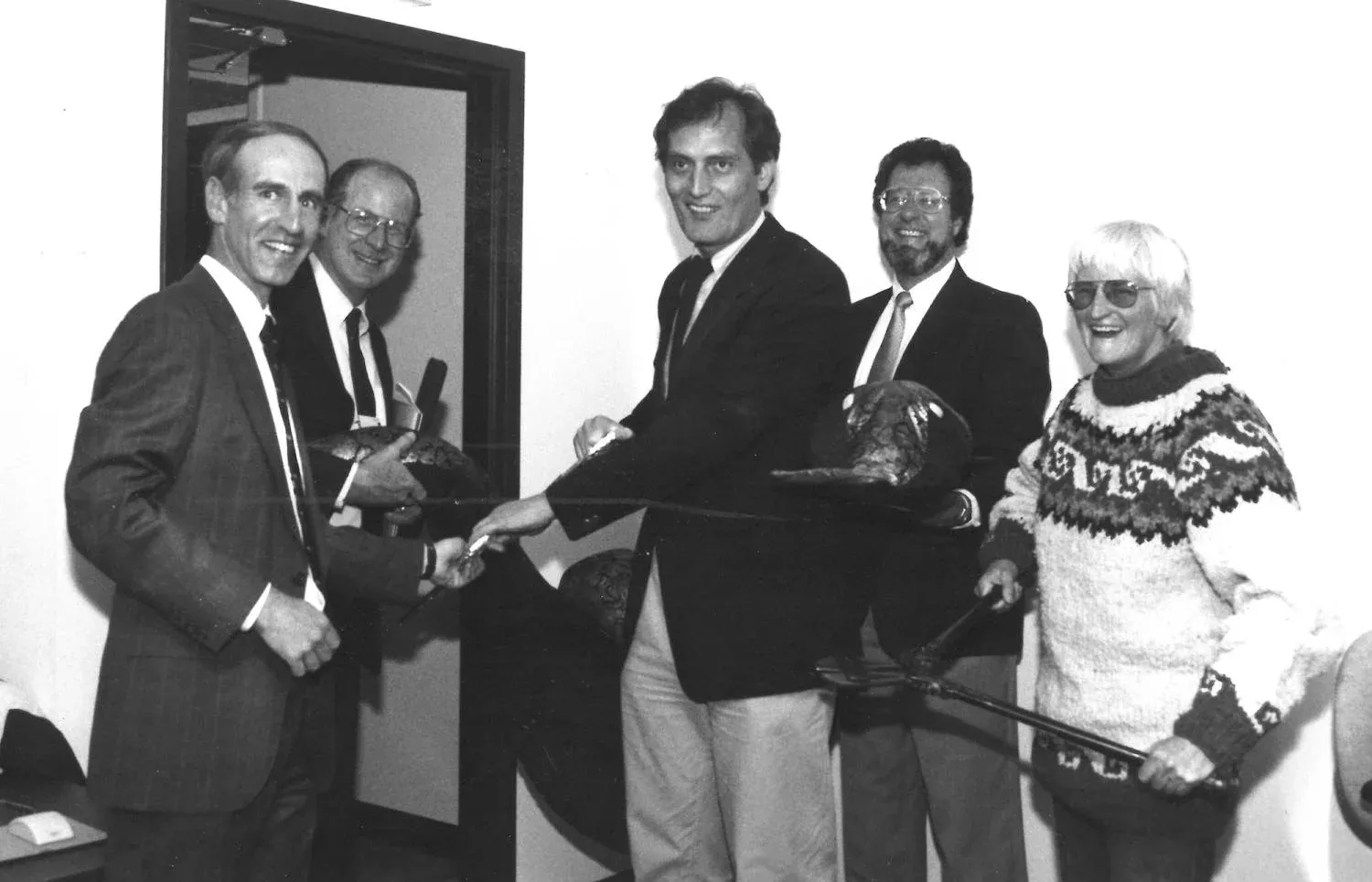
CU Boulder Computing: Punch Cards to AI

When CU Boulder’s Department of Computer Science began more than 50 years ago, it had fewer than 10 faculty members, and all students were at the graduate level. They accessed computers on campus through terminals and punch cards. Results were slow.
“In the early days, computers were what businesses used for payrolls and data processing and what scientific organizations used to model scientific phenomena,” said Bobby Schnabel, computer science professor and external chair of the department who joined the faculty in 1977. In the mid-1980s, the department received its own computer, a VAX-11/750 from the computing company Digital Equipment Corporation, said Schnabel.
“These were the ubiquitous research computing machines,” he said. “We had to have our own computing staff for the first time.”
The department chose computer science professor Evi Nemeth as the inaugural staff member to run the computer, said Schnabel. In addition to her work building a new staff, her mentorship and teaching helped solidify the positive trajectory for the entire computer science department. “She is an absolute legend,” said Schnabel. “People can tell stories about Evi till the end of the Earth.”
Nemeth — a system administration expert — worked at CU Boulder for 21 years. Hundreds of students benefited directly from her guidance. She also helped establish a scholarship program with Apple co-founder Steve Wozniak (ElEngr ex’72; HonDocSci’89).
Nemeth was lost at sea with six others in 2013, more than a decade after her retirement in 2001. But the impact she had on CU students still shines.
Terri Hogan (CompSci’94), executive director of the Boulder-based National Center for Women & Information Technology (NCWIT), was inspired by Nemeth as a college student. She recalled an early memory from an evening after a computing conference where she saw Nemeth enthusiastically swinging a mallet to try to ring a bell at a local fair.
“I was a shy freshman, and seeing her fearlessly swing that mallet even though she was three times the age of everyone else was a testament to her zest for life,” said Hogan.
As computing faces a new age with the rise of artificial intelligence, the Department of Computer Science — now with about 2,000 students and 80 faculty members — will rely on its luminaries of past and present to forge ahead.
Photo courtesy College of Engineering and Applied Science

